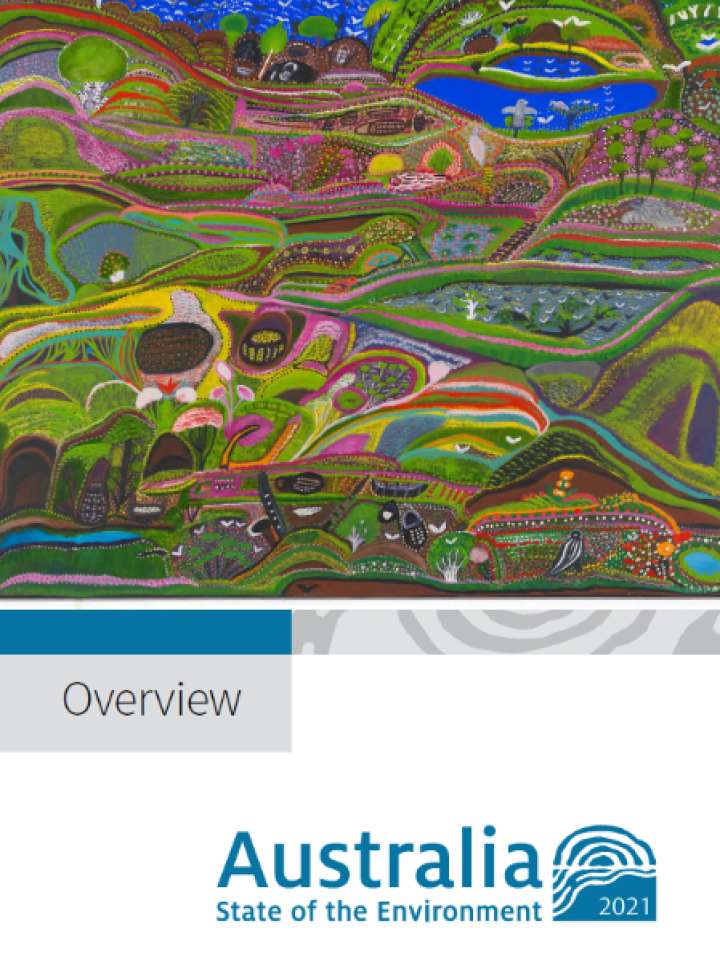Australia state of the environment 2021
Australia state of the environment 2021 is written by a panel of independent authors, using the best available evidence, assured through consultation, peer‑review and fact‑checking processes, and building on 25 years of experience in national environmental reporting. This is the first time the report has included Indigenous voices, highlighting the importance of cultural knowledge that has sustained Australia for tens of thousands of years. This report provides a synthesis and overall outlook for the Australian environment, including detailed content and assessments found in 12 thematic chapters on air quality, Antarctica, biodiversity, climate, coasts, extreme events, heritage, Indigenous, inland water, land, marine and urban. Each of these web‑based chapters contains detailed discussions of the condition of the Australian environment, taking into account the pressures on it and the effectiveness of management. These are brought together to present the overall outlook for the Australian environment and the potential impacts on Australians' wellbeing.
This report indicates that, overall, the state and trend of the environment of Australia are poor and deteriorating as a result of increasing pressures from climate change, habitat loss, invasive species, pollution and resource extraction. Changing environmental conditions mean that many species and ecosystems are increasingly threatened. Multiple pressures create cumulative impacts that amplify threats to the environment, and abrupt changes in ecological systems have been recorded in the past 5 years. Adequately resourced, innovative, responsive and collaborative management measures will foster investment and renewed action to turn things around. Australia currently lacks a framework that delivers holistic environmental management to integrate our disconnected legislative and institutional national, state and territory systems, and break down existing barriers to stimulate new models and partnerships for innovative environmental management and financing. With decreasing health of Country, Indigenous people continue to seek a larger role in managing its recovery back to health. Indigenous people seek greater participation in Australia’s environmental management system. Respectful use of Indigenous knowledge, recognition of Indigenous knowledge rights, and Indigenous and non-Indigenous knowledge systems working together will lead to positive change.
Explore further
